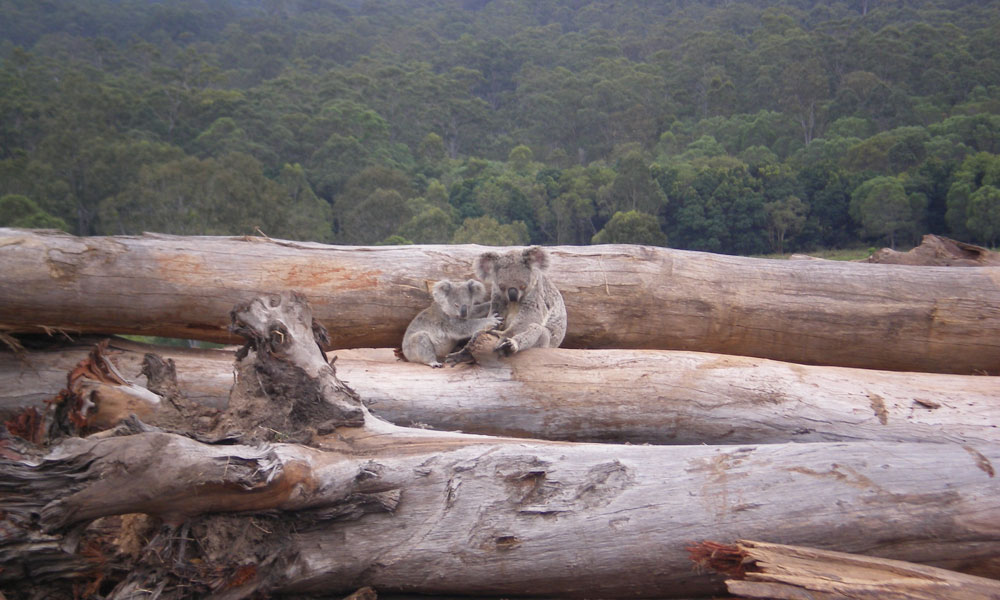As COP27 draws to a close and governments prepare to meet over biodiversity in Montreal, one thing is clear: international cooperation is key to facing unprecedented climate and environmental catastrophes.
This is true for climate, but also nature: we can’t safeguard the richness of life on Earth without protecting its globally significant places and ecosystem functions.
A number of the Earth’s special places are found in Australia. Home to up to 10% of the Earth’s biodiversity—with many plants and animals found nowhere else on Earth—Australia is a megadiverse continent. First Nations people have looked after these unique landscapes for at least 75,000 years.
Australia’s nature is infinitely precious - unfortunately, it’s also a global deforestation and extinction hotspot. In 234 years of colonisation, 50% of Australia’s forests and bushlands have been destroyed. The country has the worst rate of mammal extinctions in the world, far ahead of Brazil.
Large-scale deforestation continues at rapid rates in Australia, ripping apart precious carbon sinks, destroying the habitat of animals and plants, clogging waterways, smothering the wondrous Great Barrier Reef (again at risk of being listed as World Heritage in danger) and causing more frequent and severe wildfires. These cumulative threats are endangering thousands of animals and plants - even the koala is on track to go extinct by 2050. The absence of national public data on deforestation allows this destruction to remain largely unnoticed—domestically and internationally.
European policy has the potential to help globally important nature
Australia’s extinction crisis has two key drivers. On the one hand, decades of government inaction have amounted to a failure to limit climate change and prevent nature destruction. While the new Australian Government has vowed to reform the country’s broken nature laws and promised no new extinctions, it has yet to deliver on these promises. On the other hand, corporates don’t have strong enough standards to minimise deforestation.
While this crisis has been enabled by domestic governments and corporates, it is also driven by foreign markets, through companies importing from Australia and financial institutions investing in deforestation risk sectors. Beef production, paper, timber and packaging manufacturing are behind the lion’s share of deforestation in the country. As the largest source of investment into Australia, Europe has a responsibility to act, and has the capacity to meaningfully impact Australia’s deforestation crisis. The fact is, European market actors are likely to be involved in forest destruction overseas, including in Australia.
Thankfully, the EU’s Deforestation Free Regulation aims to reduce Europe’s impacts on the Earth’s forests. For the first time, companies importing products like beef, paper and timber into the EU may have to prove that their production was deforestation-free. This is a vital step towards the protection of forests across the globe. For Australia, Europe’s new rules would be a strong market signal, especially in the context of the EU-Australia trade negotiations. Under the trade deal, much bigger volumes of Australian products could be imported and consumed in Europe in the next few years. The Deforestation Regulation can ensure that these products meet the sustainability expectations of Europeans, by opening the EU market only to sustainable producers who are able to prove they are deforestation-free.
EU politicians can make it count for Australia
However, the devil is in the details: the EU’s new deforestation law isn’t yet final, and choices that will be made next week by negotiators will make the real difference for places like Australia. EU lawmakers will choose: they can either create a strong and inclusive Regulation that will make a real difference for nature, or they can choose to keep loopholes in the law, allow greenwashing and turn a blind eye to the rapid decline of iconic animals like the koala. At home and overseas, extinction is a choice.
Both commodity and financial flows between Europe and Australia must be effectively regulated so that they help protect nature rather than destroy it. This means adopting broad, accurate definitions to account for diverse ecosystems, and making sure the large-scale deforestation that happens on agricultural land is covered by the rules.
Too often, communities don’t get a fair say in the decisions that affect nature: this Regulation must uphold community rights and enshrine free, prior and informed consent for indigenous peoples.
Finally, the EU must follow an independent process when determining country risk levels: just because Australia is a developed economy doesn’t mean it has a low risk for deforestation, or that nature laws are adequate or enforced, or that companies have sufficient policies in place. Enforcement will be the true test of this Regulation.
As Australia’s species extinction crisis worsens, there is no time to lose - the EU must turn its green ambitions into action for forests everywhere.


